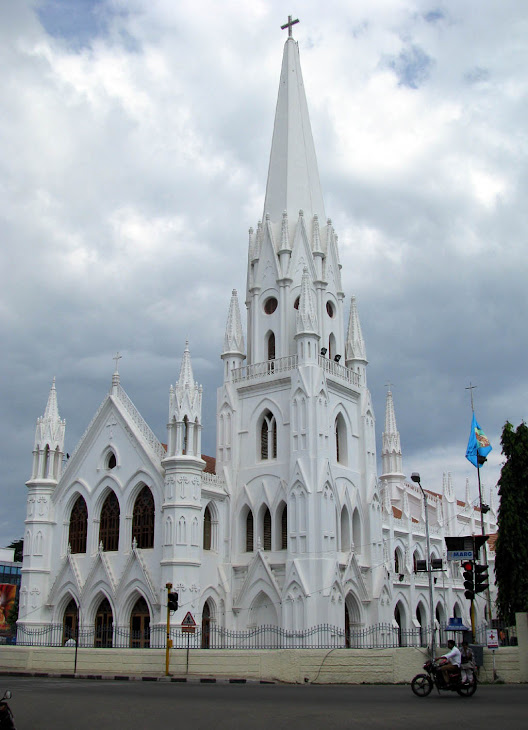Well, Tamding is out trying to get permission for me to enter Mundgod (his refugee camp). Normally, such permission would take two months, but there is a special event happening soon in Mundgod that will draw many foreigners. We still probably not get the permission in time, but our application should be enough to allow me to enter. Anyway, I have some free time, so I will try to explain the Hindu gods. There is a common misconception in the West that Hinduism is a polytheistic religion and Hindus get very offended by this. So that's why I'm writing this.
So to start with, Namaste! That is the traditional Hindu greeting. It is often translated as "The Divine in me welcomes the Divine in you." I think Deepak Chopra probably has the best translation: "I honor the Spirit in you which is also in me." Regardless of the translation, the phrase recognizes a fundamental concept of Hinduism: the Brahman. The Brahman is a essentially an infinite conscious being that both is reality and transcends reality. It bridges both existence and non-existence. It is the most fundamental essence in the universe and the universe arises from it. It pervades all existence and everything in the universe contains the Brahman. The Brahman is essentially God in Hinduism, although obviously the word "God" doesn't quite fit. And because the Brahman exists within all human beings, all human beings contain a little bit of "God" (or the Divine), in themselves. The term "Namaste" recognizes this. In Hinduism, to be holy is recognize the true nature of the Brahman within one's self.
So what about all those gods? Like everything else, the gods themselves are also parts of the Brahman. They are merely manifestations of the Brahman and reflect different aspects of the Brahman's nature. In the Bhagavad Gita, Krishna tries to explain this to Arjuna. Krishna is an enlightened being who fully understands the Brahman within him and, therefore, has extraordinary powers. When Arjuna is confused about the Brahman, Krishna starts turning into the various Hindu gods in order to show that they are all really the same being. To drive the point home, he finally turns into all the gods at once. He then explains to a stunned Arjuna that all beings contain this Brahman and are capable fully realizing the full essence of the Brahman.
This may all seem very weird, but there is actually a parallel in Christianity: the Trinity. The Father, Son, and Holy Spirit are not separate entities, but different manifestations of the same entity. So, in some way, the Brahman could be thought of as the Trinity, but on a grander scale. But the concept is similar. I guess the primary difference would be that Christianity tends to view time in a linear fashion, while Hinduism views it as cyclical. Because time neither starts nor stops, the Brahman exists independent of time.
Tuesday, December 18, 2007
Subscribe to:
Post Comments (Atom)







No comments:
Post a Comment